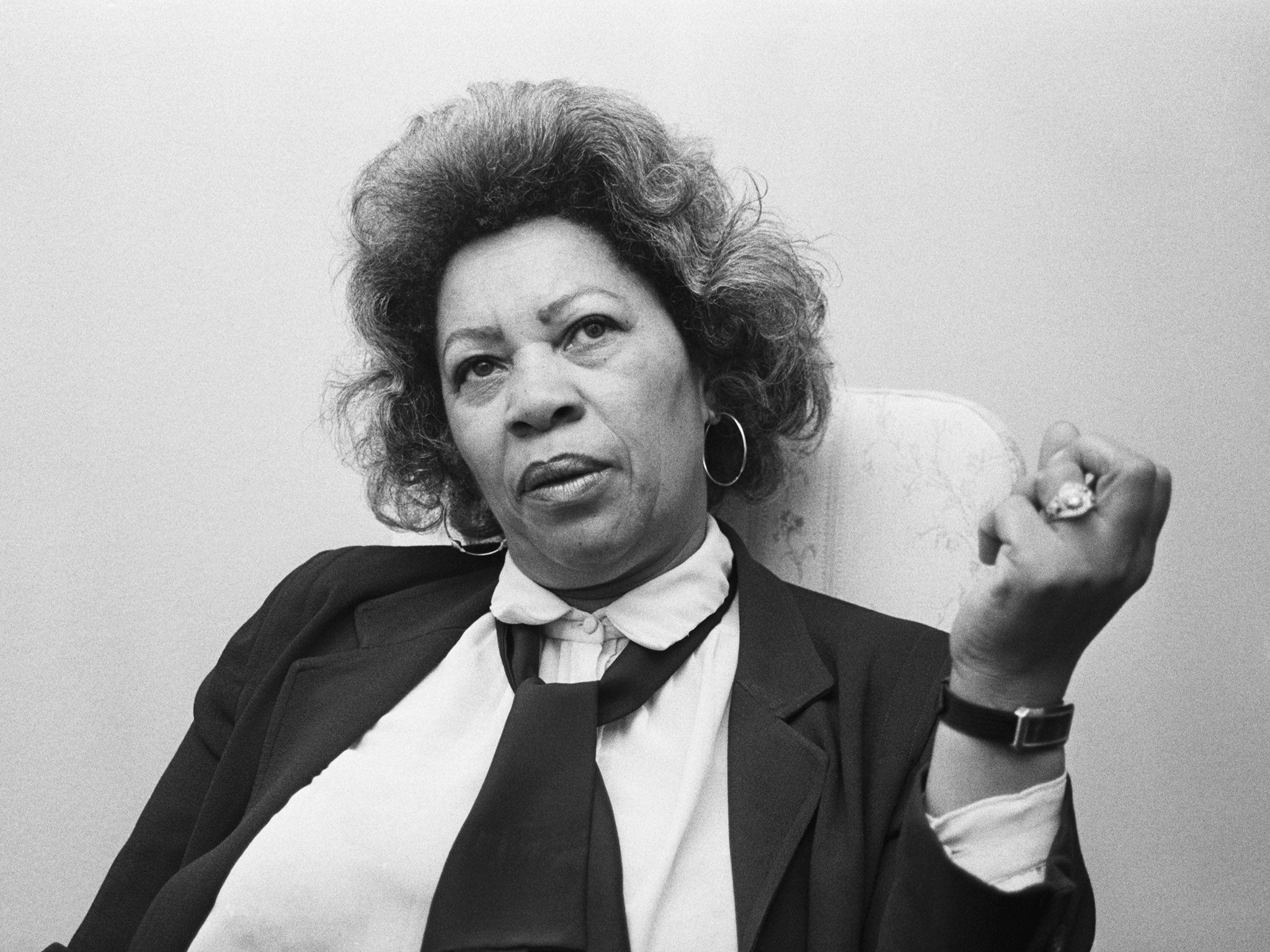The Independent's journalism is supported by our readers. When you purchase through links on our site, we may earn commission.
Toni Morrison death: ‘Beloved’ author and Nobel laureate dies, aged 88
Celebrated and influential author was best known for her novels ‘Beloved’ and ‘Tar Baby’
Nobel Prize-winning author Toni Morrison has died at the age of 88.
Her death was confirmed “with profound sadness” by the Morrison family, who said she had passed away in the Bronx, New York, “following a short illness”.
The celebrated writer of 11 novels was known for her searing works about slavery and the experiences of black women, including 1987’s Beloved, the story of a runaway female slave – for which she won the Pulitzer Prize for fiction the following year.
She became the first African American woman to win the Nobel Prize for Literature in 1993.
Morrison began her career as a teacher and an editor, before publishing her debut novel, The Bluest Eye, in 1970.
Her third novel Song of Solomon (1977) won her national acclaim, and was followed by Tar Baby (1981), Beloved, and Jazz (1992).
Her last novel, God Help the Child – about a girl with dark skin who is abused by her light-skinned parents – was published in 2015.
“The consummate writer who treasured the written word, whether her own, her students or others, she read voraciously and was most at home when writing,” a statement from her family said.
“Although her passing represents a tremendous loss, we are grateful she had a long, well-lived life.”
Morrison’s long-time editor Robert Gottlieb, of Knopf publishers, said: “She was a great woman and a great writer, and I don’t know which I’ll miss more.”
Knopf’s chairman Sonny Mehta added: “I can think of few writers in American letters who wrote with more humanity or with more love for language than Toni.

“Her narratives and mesmerising prose have made an indelible mark on our culture. Her novels command and demand our attention. They are canonical works, and more importantly, they are books that remain beloved by readers.”
Former US president Barack Obama, who presented Morrison with the Presidential Medal of Freedom in 2012, was among the many public figures to pay tribute.
He shared a photo of himself with the author in the Oval Office at the White House along with a moving message.
“Toni Morrison was a national treasure, as good a storyteller, as captivating in person, as she was on the page,” he wrote. “Her writing was a beautiful, meaningful challenge to our conscience and our moral imagination. What a gift to breathe the same air as her, if only for a while.”
When she was awarded the Nobel Prize in Literature, the Swedish Academy described her as a writer “who in novels characterised by visionary force and poetic import, gives life to an essential aspect of American reality”.
“I’m already discredited, I’m already politicised, before I get out of the gate,” Morrison told the New Yorker in 2003. “I can accept the labels because being a black woman writer is not a shallow place but a rich place to write from. It doesn’t limit my imagination; it expands it. It’s richer than being a white male writer because I know more and I’ve experienced more.”
She added: “I know it seems like a lot. But I really only do one thing. I read books. I teach books. I write books. I think about books. It’s one job.”
Morrison was most recently the subject of a documentary, Toni Morrison: The Pieces I Am, which charted her life and work.
Join our commenting forum
Join thought-provoking conversations, follow other Independent readers and see their replies
Comments
Bookmark popover
Removed from bookmarks